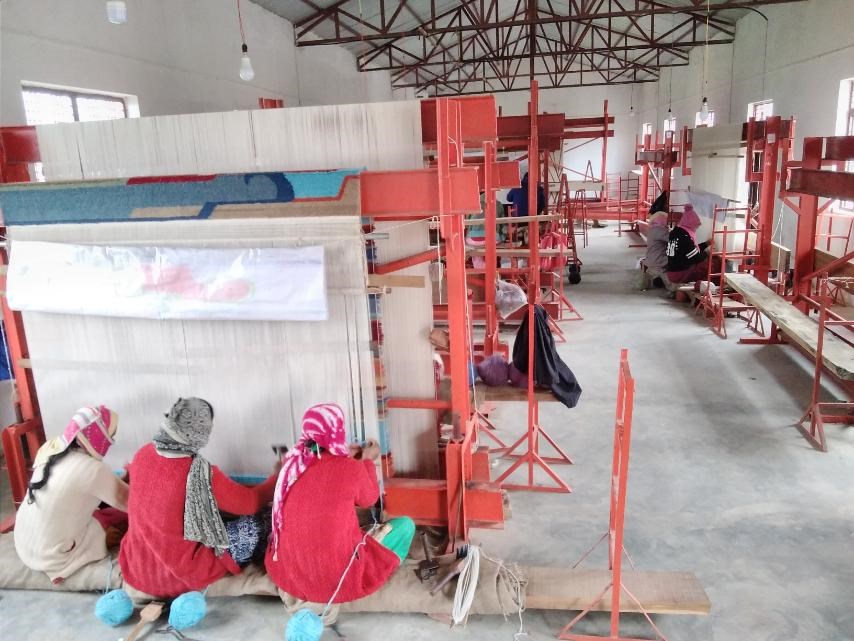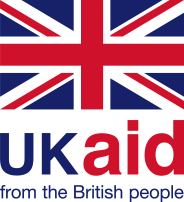For more than fifty years, Kathmandu Valley—the nation’s capital—has served as a creative hub for the manufacturing of handmade rugs. This has helped position the country as a world leader in production of modern handmade carpets, with acceptability among buyers from the luxury interior design markets worldwide. However, in recent years the production environment in Kathmandu Valley has become increasingly challenging with the emergence of a booming real estate market, high production costs, lack of job attractiveness and consequential labour shortages. As a result, the once-thriving industry is becoming increasingly fragile.
Shifting Skilling Paradigm for Sustainability of Nepal’s Carpet Industry and Jobs
Given the industry’s notable contributions to generating foreign exchange earnings (USD 54 million in 2020/21) and employment, carpet is classified as one of the top five major export commodities of Nepal following soybean oil, yarns, cardamon and jute products (TEPC, 2020). In 2018, UKaid सीप’s engagements with the industry disclosed the need to shift parts of the carpet production process outside the valley in order to sustainability build and retain skilled workforce and protect the industry. Under this context, UKaid सीप joined hands with Label STEP and its consortium of pioneer carpet exporters and international buyers in September 2019 to recreate the success model of Nepali carpets—by taking the carpet manufacturing hub from Kathmandu to underserved geographic areas in Province 2 that have traditionally served as the origin of Nepal’s weaving community.



Weaving Workshops in Sarlahi.Courtesy: Label STEP Master
Weaver Bishnu Maya B.K. has trained hundreds of new weavers through the STEP - सीप partnership. / Courtesy: Label STEP
Anchored in an Artisan Village creation concept, the partnership has gone beyond addressing production bottlenecks. UKaid सीप’s support is a critical step to reinvigorating the industry with new, highly motivated and qualified weavers—enabled through skilling on artisanal rug weaving—using international-quality competency standards and industry-led skilling and certification. To date, STEP with support from its partners have established seven fair-trade artisan workshops in Sarlahi with 350 women already employed, and 100 more undergoing training—at least 60% of whom come from migrant households.
“UKaid सीप’s support is not only providing decent, attractive jobs with fair trade standard working conditions to job seekers in the socioeconomically disadvantaged regions, but is also bringing fresh air and energy to the industry, supporting its long-term sustainability”, reflects Reto Aschwanden, Managing Director of Label STEP. To promote Nepali fair-trade carpets and the Artisan Villages partnership supported by UKaid सीप, STEP has also taken the Artisan Village story to Domotex, the largest trade show of rugs and floor coverings in Germany—garnering greater interest for the Nepali carpet industry and the weavers behind them. Similarly, to support innovation in carpet designs, representatives from the renowned international rug brand Jan Kath, have visited the workshops in Sarlahi to orient weavers on rug weaving and to promote weaving as a high-value artistic vocation.
सीप and STEP, along with their consortium partners, NP Rugs, Kaju Rugs, Vijaya Laxmi Organisation, are also laying the foundation for migrants to invest their hard-earned remittance productively by setting up weaving workshops, independently or in collaboration with Kathmandu-based exporters and investors. “Our aim is to maximise the socioeconomic impact of return migration in Nepal,” noted Prasuna Saakha, Migration Component Lead at सीप. Several returnee migrants are involved in the project in various capacities: as investors, master weavers, weavers, and aspiring entrepreneurs. “Our goals are common: to generate productive livelihoods; restore dignity of labour in this specialised industry; stemming internal migration of the weavers to difficult working conditions in the Kathmandu Valley; and revitalise Nepal’s carpet industry,” Saakha added.
Master Weaver Bishnu Maya B.K who oversees multiple weaving workshops in Sarlahi, shares, “there is significant difference in having or not having skills,” as she described the impact of the project on production volume and quality and motivation of the weavers, which she has witnessed first-hand since 2019.
B.K. has trained hundreds of new weavers through STEP and सीप’s partnerships. She reminisces about a 11-day master weavers training that she received in 2019 from Rainer Jedinat, an international quality controller, in Kathmandu, and how it transformed her personally and honed her tutorial skills. Cognizant of weavers’ needs and interests, STEP and सीप’s partnership also ensured integration of financial literacy courses for weavers, to improve capacity for responsible management of finances and facilitate access to bank and savings accounts. A specially-designed digital application that tracks individual weaver’s performance; including quality of artisanship; volume of production; as well as the traceability of every carpet with local and international buyers was pioneered under this partnership. The application has garnered international attention and is also now being adopted for use in other countries.
Since the onset of the Covid-19 pandemic, the need for fair trade has become even more obvious. “We have pushed for living wages—salaries that enable weavers and workers to not only cover basic needs but also save 10% of their earnings—as reserves for times of crisis like this,” added Aschwanden.


